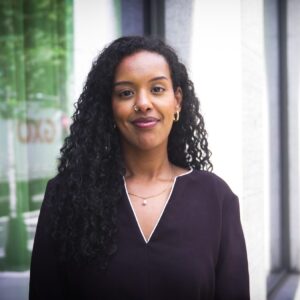
IKWRO is a women’s rights organisation that focuses on Violence Against Women and Girls (VAWG), founded to support women from BME backgrounds culturally specific to the MENA region — North Africa and Middle East. Some of the issues we tackle include so-called “honour-based” abuse, forced marriage, child marriage, and other lesser-known forms of harmful practices. On top of our advice work, we also campaign for policy changes and offer training to frontline workers like police and social workers.
Like many independent advice providers, we too are facing recruitment challenges. Finding candidates with the right mix of cultural understanding, language skills, and expertise in gender-based violence is extremely difficult. Limited funding restricts the organisation’s ability to offer competitive salaries, while short-term contracts make it harder to attract and retain qualified professionals in a high-stress sector. Many roles also require deep knowledge of Middle Eastern and Afghan communities, further narrowing the pool of suitable applicants.
To ensure we can keep our doors open, we have had to get creative. One of the most impactful strategies that we have implemented is employing multilingual staff from within the community. This not only builds trust with clients but also improves communication and ensures culturally sensitive support. Strong internal team cohesion and a shared mission have further enabled IKWRO to withstand external pressures. We also provide structured induction and ongoing training in safeguarding, trauma-informed support, and legal frameworks such as forced marriage and FGM legislation. Our staff benefit from regular, supportive supervision that combines case management with wellbeing support, ensuring resilience and high-quality service delivery.
While we are pushing through and continuously thinking about how we can do better for our team, we still require Government support. Sustainable, long-term funding is essential. The unique role of specialist services like IKWRO should be duly recognised by means of investment in pathways to train more bilingual, culturally competent professionals.